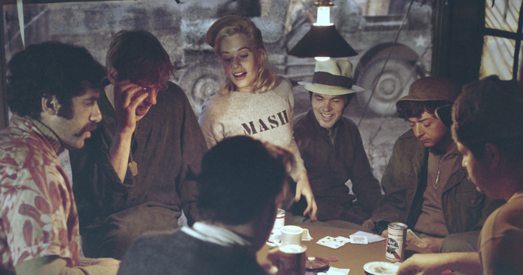
M*A*S*H – Showing the Folly of the Times
I was in college, of prime draft age, when M*A*S*H hit the theaters in 1970. That probably says a lot about what I found so appealing about that film when I first saw it.

I was in college, of prime draft age, when M*A*S*H hit the theaters in 1970. That probably says a lot about what I found so appealing about that film when I first saw it.

When I arrived at Hollywood and Highland on Sunday morning, there were some people on the street organizing a march about sexual assault and harassment in the entertainment industry. News in recent weeks has been full of stories about the issue and social media filled up with ?me too? comments. It is indeed a serious…